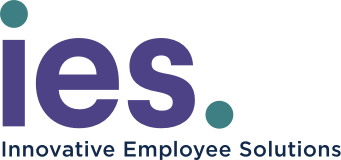Inside the American Rescue Plan Act is a tax change set to impact the gig economy in a huge way. Though originally set to begin for the 2022 tax year, the IRS granted gig workers a 12-month reprieve. Come tax season 2024, however, the proposed change will lower the reporting threshold for taxpayers issued a Form 1099-K. Instead of the original limit of 200 transactions totaling more than $20,000 in gross payments, it would be any number of transactions totaling $600. Even a single transaction could result in the issuance of the form.
Though many gig workers supplement their incomes by selling products or services through online marketplace platforms, that’s not the case for everyone. In recent years, an increasing number of “giggers” have all but left their more traditional jobs to pursue what were once hobbies and turned these passion projects into full-time careers — so many, in fact, that the gig economy is expected to reach $455.2 billion this year.
Many of these freelancers rely on the likes of PayPal, Venmo, Square, Stripe, and many other third-party payment processors to facilitate direct-to-consumer transactions. To report the amounts received by these individuals, the electronic payment facilitators or payment settlement entities will then issue a 1099-K, also known as a “Payment Card and Third-Party Network Transactions” reporting form. A lower reporting threshold in 2024 would mean more gig workers will receive 1099-K forms.
More importantly, the lowered threshold would also mean that everyone working in the gig economy — and not just freelancers, mind you — would need to tighten up their record-keeping practices. It’s the only surefire way to ensure they accurately report their earnings and deductions when filing gig worker taxes. So, the delay couldn’t have come at a better time, allowing those in the gig economy to familiarize themselves with the proposed freelance tax reporting requirements and enlist the help of a tax advisor should the need strike.
What You Need to Know for Next Year’s Gig Worker Taxes
The first thing you might wonder is how to file taxes for freelance work. As a gig worker, understand that you’re not just a worker but an employer. You’re basically running a small business. As a result, the payroll taxes once handled by your former employer — or current employer, if you’re still working a traditional job — must come from you for any money earned in the gig economy. You will be responsible for paying the taxes that fund Social Security and Medicare. What’s more, you’ll be responsible for paying both the employee and employer portions, which can quickly add up.
It’s important to start preparing now for the upcoming tax season, and a good starting point is the Gig Economy Tax Center on the IRS website. It has a great deal of information available to help you get a better understanding of the forms and records needed to file your tax returns properly and accurately. Once you’ve gotten a better understanding of what to expect for next year’s tax season, then it’s often a matter of doing the following to ensure you’re prepared:
Rethink your records management practices
Understanding which records to keep and track will be key to ensuring compliance — as will knowing where exactly those records are at all times. Naturally, this will require you to establish a filing system where you can accurately index and categorize not only various income streams, but also expenses.
Document who paid how much and when and where. Break the details out by vendor, month, category, or whatever works best for you. Just make sure it’s easy to manage and follow. Otherwise, it won’t streamline the filing process all that much. Also, don’t forget to keep a detailed log of what you spend to run your home office. Supplies, equipment, subscriptions, and postage are just a few line items to track. And if you use your car for any part of your business, log mileage. A simple spreadsheet should serve you well for this purpose.
Know what you owe
Chances are, you already owe taxes if you’ve just begun working in the gig economy — maybe not for this year but next. It might be beneficial to start using an online tax prep tool for the 2023 tax year. The technology will allow you to create a “dummy return,” which can give you a better idea of what you’ll most likely owe next year.
Remember, no one is withholding any money from your income, so the onus is now on you. The dummy return can give you some indication of whether you’ll be required to make quarterly estimated tax payments to the IRS. This is especially important if freelance work is your only source of income. There are no other withholdings offsetting what you’ve made in the gig economy.
Enroll in the IRS’s EFTPS
The EFTPS is the Electronic Federal Tax Payment System, where you can submit quarterly tax payments if needed. This will allow you to avoid penalties and interest (roughly 3%) caused by underpaying taxes throughout the year. Plus, the system is free to use. All that’s necessary for freelance tax reporting is paying quarterly by April 15, June 15, September 15, and January 15 of each calendar year.
Work with a tax professional
If you’re unsure or new to filing tax returns as a self-employed individual, consult with a tax professional for advice. Although this gig worker tax change wasn’t implemented for the 2022 tax year, it will take effect in 2023 and will apply to transactions processed this year. A tax professional can answer your questions, of course. But they can also offer valuable money-saving tax-planning advice related to gig economy tax deductions, which can help lower the amount of your reportable income and decrease taxes owed.
Whether you’re a high-paid consultant, ride-sharing driver, or someone trying to earn some extra cash by walking dogs, you’re officially part of the gig economy — and an entirely new world of tax rules. And with these rules come some tax benefits. With the American Rescue Plan tax changes, you’ll find gig economy tax deductions galore, as well as opportunities to put money away for retirement. But it’s all in what you know, so familiarize yourself with your obligations for the upcoming year and plan accordingly. The last thing you want is for your dream job to become a nightmare when taxes come due.
Written by: Alex Gomez, Controller, Payroll & Billing
Alex Gomez is the controller and employment tax expert at Innovative Employee Solutions (IES), a leading provider of remote and contingent workforce solutions, specializing in global Employer of Record, Agent of Record and Independent Contractor compliance services in 150+ countries. Founded in 1974, IES is a woman-owned business, certified by the WBENC and partners with companies to provide compliant employment solutions that empowers people’s lives.







